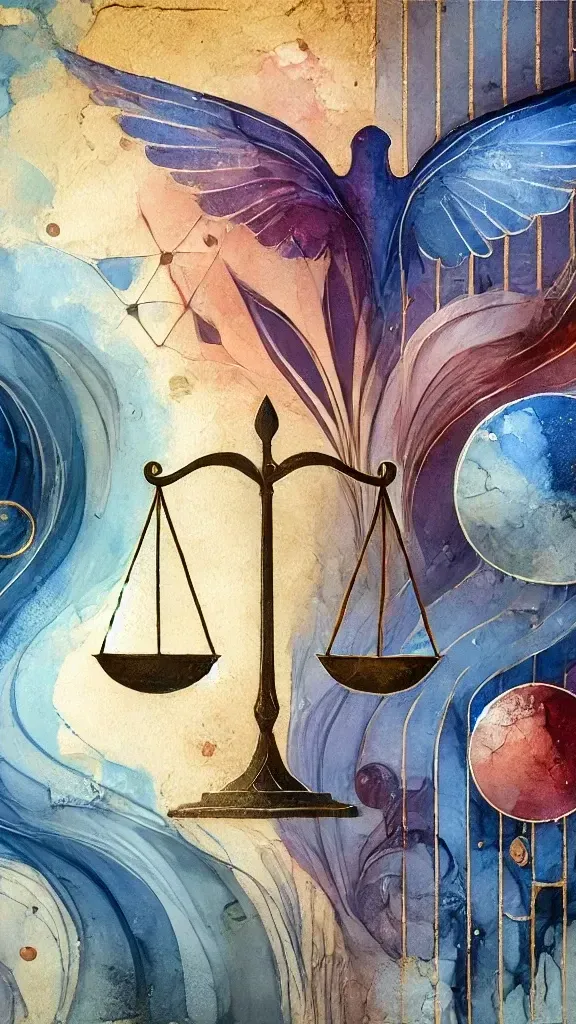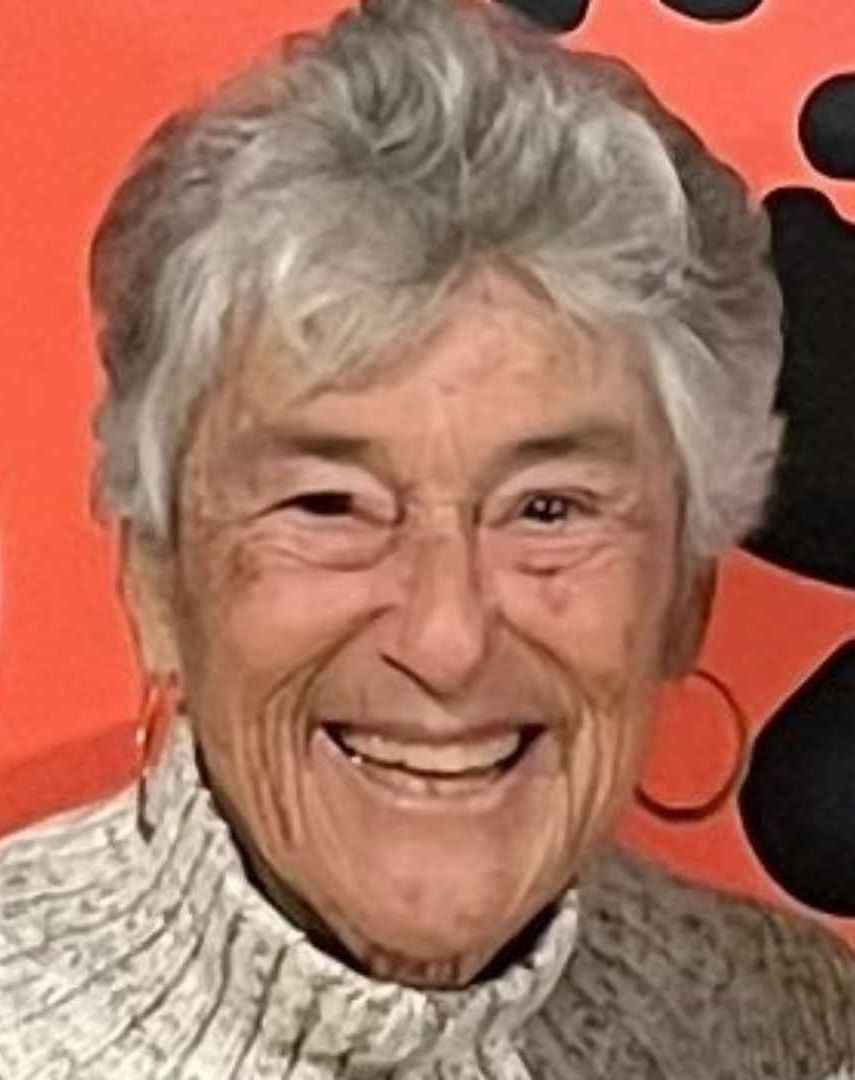Social Justice
Area Summary
MSocial justice begins with responsibility—for one’s actions, their consequences, and the possibility of repair. Our work in Social Justice engages Jewish ethical teachings that address wrongdoing, accountability, and the hard work of making amends, without minimizing harm or excusing crime. Building on this foundation, we work with professors and scholars to bring Jewish frameworks of justice, responsibility, and repair into academic study and teaching. Drawing on Jewish law, philosophy, and moral thought, this work examines how individuals and societies reckon with harm, obligation, and the conditions for moral restoration. By supporting serious scholarship and campus-based learning, we aim to deepen how future leaders, educators, and institutions think about justice—not as abstraction or ideology, but as a lived moral challenge.


Lead Fellow
Elaine (Sneierson) Leeder is Social Science Dean Emerita and Professor Emerita of Sociology at Sonoma State University. She has 44 years of teaching experience, including working in prisons with convicted felons. Leeder was a visiting scholar at the United States Holocaust Memorial Museum and a recipient of the Real Hero Award by the American Red Cross for her prison work. She has written six books, one of which, My Life with Lifers: Lessons for a Teacher, Humanity Has No Bars (Terra Nova Books, 2012), is used in colleges around the country. Leeder (a very distant relative of the Lubavitcher Rebbe) is honored to be included in this project since being a Jew and her prison work are core pieces of her identity.
Read more about her story here.

Podcast
FROM DESPAIR TO REPENTENCE: JEWS, SPIRITUALITY, AND PRISONS
Elaine Sneierson Leeder, MSW, MPH, PhD
Elaine Sneierson Leeder, MSW, MPH, PhD is a fellow at IJSS and has been speaking around the country about Restorative Justice since 2022 using a Jewish spiritual lens. Having spoken to over 50 community organizations, Leeder now presents this podcast called FROM DESPAIR TO REPENTENCE: JEWS, SPIRITUALITY, AND PRISONS intending to inform audiences that redemption is possible behind prison walls. Leeder has worked in prisons for the last 25 years, first as a professor, then as a self-help group organizer, then as a victim/offender dialogue facilitator. Her book My Life with Lifers: Lessons for a Teacher, Humanity has no Bars, details her experiences inside the walls of infamous San Quentin State Prison
Having worked with dozens of prisoners, she has especially focused her recent work on Jews who are or have been incarcerated. Using the Rebbe’s teachings, she brings the experiences of those inside into the light of day, hoping to educate the public about the nature of the criminal justice system and issues of mass incarceration, with a particular Jewish lens. Chesed, teshuvah
The mission of IJSS is to advance scholarship, social transformation, bringing Jewish spiritual knowledge to bear on the toughest challenges of contemporary society. We break down barriers between spheres of knowledge and practice, enabling long-term collaboration among scholars, social researchers and human service practitioners.
This year marks our first year with podcasts, bringing to you people who are engaging in the work on the ground, with real people, but imbuing what they do with a spiritual practice as it relates to prisons, restorative justice and mass incarceration.
Liz Margolies
As my first interviewee for this new podcast, I bring you Ms. Liz Margolies.
Ms. Margolies is a psychotherapist and the mother of a Jewish prisoner in a federal facility in CT. For the last few years, she has been running support groups for mothers of incarcerated Jews through the Aleph Institute and Hinda Institute. This work builds community among the women by addressing the shame that has led to secrecy and isolation. She has written several articles about mothers of incarcerated sons, seeking to improve the support and services that this population so sorely lacks.
Please visit her website: www.stillmyson.org to find out more about her work.
The Aleph Institute is a national organization that serves individuals of all backgrounds and faiths. Their guiding factors are Torah principles based on acceptance of God as the Supreme Power and Creator of the universe and emphasizing the values of human dignity, thereby making the world a better place for all. All of Aleph’s services are provided at no charge.
The Aleph Institute, founded in 1981 at the express direction of the Lubavitcher Rebbe, provides crucial financial, emotional and spiritual assistance to thousands of shattered families – helping them persevere through extraordinary crises – while providing support for their loved ones in prison and mental institutions.
Ms. Harriet Rossetto and Rabbi Mark Borovitz
Harriet Rossetto started Beit T’Shuvah over 30 years ago with a tremendous humanizing task: to help broken souls and change a broken system. Harriet’s belief that addiction is a malady of the soul requiring spiritual healing inspired her to create a thriving community that supports addicts of all kinds, wherever they are in life. Her greatest reward is witnessing and participating in the miracle of transformation. Her view that everyone is capable of redemption is at the core of why she empowers the residents of Beit T’Shuvah with employment, hiring 90% of her staff from within. Today they are the lifeblood of the organization.
Harriet is a courageous woman and social worker, who took an interest in the unpopular cause of helping incarcerated Jewish men re-enter society and made it her life’s passion. From that passion was born Beit T’Shuvah, a once tiny halfway house that has grown exponentially into a renowned treatment organization. Her voyage is remarkable and an inspiration to all people.
Rabbi Mark Borovitz
Officially ordained in 2000 at the University of Judaism with a Master’s in Rabbinic Literature, Rabbi Mark Borovitz combined his knowledge of Torah and street smarts to shape his calling: helping recovering addicts find their way in the world. Spiritual Leader, Author, Senior Rabbi, CEO, ex-con, recovering alcoholic, and overall anomaly, he is able to reach both the addict and the congregant, and de-stigmatize this life-threatening disease.
Dr. Yehudah Pryce DSW, MSW
Elaine Sneierson Leeder interviews Yehudah Price, former gang member and now an Orthodox Jew. Hear his remarkable story and enjoy this free ranging and honest dialogue.
In this fascinating and compelling podcast Yehudah Pryce tells of serving over 16 years incarcerated for a non-violent robbery for which he was arrested as a teenager. While inside he was transformed by finding Judaism. (a rather unusual calling for bi-racial ex-gang member who was used to challenging all ideologies).
While incarcerated, he helped design and facilitate personal development curriculum for his fellow incarcerated community members. Since his release from prison on October 22, 2018, he finished his Bachelor of Arts in Sociology with an emphasis in social welfare; he graduated with his Master in Social Work degree from the University of Southern California (USC), where he
was the chair of the student caucus group Unchained Scholars; and he completed his Doctorate in Social Work degree, in which his capstone project was “Person-centered Smart Decarceration: an MSW course centered on community members with a lived experience of incarceration.”
In this podcast he speaks on “From a Gangster in Prison to Orthodox Judaism: A Journey of Teshuvah,” discussing his journey from being a criminal to his life as a Chasid.
Below are links to his websites.
www.reishlakishconsulting.com
www.dryehudahprycelcsw.com
Jenna Robinson
Today’s guest is someone whose work lives at the intersection of art, advocacy, and emotional restoration.
Meet Jenna Robinson — a poetry therapist, performance poet, musician, and professor based in the Bay Area of California. Jenna is a fierce advocate for those living at the margins, helping them reclaim their narratives through the powerful traditions of spoken word and therapeutic writing. With over a decade of experience teaching and performing, she’s a two-time Grand Slam champion of Hawaii Slam and has competed on national slam poetry teams, even placing second in the nation at the National Poetry Slam.
But Jenna’s impact goes far beyond the stage. Through her private therapy practice and her leadership in the Bay Area Creative’s “Revisions” program, she supports individuals and families—especially those affected by trauma, abuse, and systemic injustice. Whether she’s working with youth in juvenile detention, teaching graduate students in counseling psychology, or guiding intergenerational writing circles, Jenna brings a rare blend of compassion, creativity, and clinical insight.
In this conversation, we’ll dive into how poetry can be a lifeline, how performance becomes a ritual of release, and how storytelling can be a form of spiritual and restorative justice. Jenna shares powerful stories from her work, including moments of breakthrough with foster youth and adjudicated teens, and reflects on how her own journey through grief and art shaped her path.
So settle in—this is a conversation about voice, vulnerability, and the radical act of being heard. Let’s welcome Professor Jenna Robinson.
Rivkah Slonim
Today’s guest is someone whose wisdom has shaped not only my understanding of Jewish thought, but also my personal path through faith, family, and healing.
Rifka Slonim is the Associate Director of the Chabad Center for Jewish Student Life at Binghamton University. She’s an internationally respected teacher, lecturer, and activist who travels widely, speaking on the intersection of traditional Jewish observance and contemporary life—with a special focus on the role of Jewish women in law and lived experience. Rifka is also the editor of two powerful anthologies: Total Immersion, a mikvah collection, and Bread and Fire, which explores how Jewish women find God in the everyday.
In this conversation, we’ll explore the profound Jewish teachings on repentance and forgiveness—not as peripheral ideas, but as central pillars of the human experience. Rifka brings us into the heart of Jewish mysticism and law, drawing from sources like the Tanya and Maimonides to illuminate how we understand sin, return, and the duality of the soul. She challenges us to see every person as inherently holy, even when they’ve strayed, and to embrace the lifelong tension between our godly and animal souls.
This is a conversation about the sacred struggle of being human—and the divine potential in every return. Let’s begin.
Corinna Espino MSW
In this powerful episode of From Despair to Repentance: Spirituality and Restorative Justice, host Elaine Leeder introduces Corinna Espino—a visionary leader and social worker whose life’s mission intertwines empathy, equity, and spiritual healing. The podcast, sponsored by the Institute for Jewish Spirituality and Society, highlights efforts to bridge scholarship and frontline activism.
Corinna shares her journey from a high school protest against modern-day slavery to international service work and policy advocacy. She now leads child trafficking prevention efforts in Contra Costa County and founded Empathy and Action LLC, a consulting firm dedicated to trauma-informed, equity-driven organizational change.
Throughout the conversation, Corinna emphasizes the importance of restorative justice and spirituality in protecting marginalized youth. She describes her dual roles with passion, overseeing case management and interagency collaboration, while building emotionally intelligent frameworks for schools and community partners. Her story is not just about credentials—it’s a call to reimagine systems with compassion at their core.
The episode offers tangible examples of grassroots change, such as community assessments in Richmond and school-based restorative practices, driving home Corinna’s belief that lasting transformation begins with empathy.
Rabbi Yosi Briski
Podcast host Elaine Leeder MSW, MPH, PhD, welcomes Rabbi Yosi Briski—Director of Alternative Sentencing at the Aleph Institute. Rabbi Briski is a powerful advocate for second chances, working nationwide to help individuals facing incarceration find a path toward rehabilitation, reflection, and redemption.
From Crown Heights to courtrooms across America, Rabbi Briski brings spiritual guidance and emotional support to families in crisis. His work begins long before sentencing—walking alongside individuals as they confront their past, shift their priorities, and commit to meaningful change.
This episode dives deep into the human side of justice: what it means to truly repair, to reflect, and to rebuild. Rabbi Briski’s approach isn’t just about avoiding prison—it’s about transforming lives.
Tune in for a conversation that challenges how we think about punishment, accountability, and healing.
Rabbi Dr. Eli DeWitt
From Despair to Repentance: Jewish Spirituality, Prisons, and Restorative Justice
Episode: Building Jewish Life Behind Bars – A Conversation with Rabbi Dr. Eli DeWitt
In this inspiring episode, host Elaine Sneerson Leeder speaks with Rabbi Dr. Eli DeWitt, Education Coordinator for Matir Asurim: The Jewish Care Network for Incarcerated People. Together they explore what it means to live a vibrant Jewish life within the walls of prison — and how spirituality, study, and connection can thrive even under the most restrictive circumstances.
Rabbi DeWitt shares how Matir Asurim connects incarcerated Jews (“inside members”) and community supporters (“outside members”) across the U.S. and Canada through correspondence, study, and shared learning. They discuss the organization’s groundbreaking programs, such as the Torah from the Inside Out hybrid course that brings together incarcerated and non-incarcerated learners in deep spiritual dialogue.
Drawing from Jewish wisdom, queer and multifaith justice movements, and personal experience as a rabbi and educator, Rabbi DeWitt offers a profound look at how compassion, courage, and faith can transform isolation into belonging.
Listen as we explore how Torah, community, and creativity illuminate even the darkest places — reminding us that no one is beyond the reach of spiritual connection.
Eric Giusini
Elaine Leeder introduces her podcast series exploring Jewish spirituality, restorative justice, and the transformation of lives touched by incarceration. Her guest, Eric Giusini, manages a community park in Philadelphia and uses his experiences to promote compassion, creativity, and second chances.
Eric shares his journey from prison to spiritual renewal. Raised Jewish but distant from faith in his youth, his first prison term in Florida (2010–2013) was marked by fear and isolation. He concealed his Jewish identity to survive in a hostile environment. Years later, after rebuilding his life, marriage, and family, Eric was unexpectedly re-incarcerated in 2019 due to a legal technicality.
This time, however, his faith and community connections—especially with Rabbi Menachem Schmidt, who supported him like a father—transformed his experience. Rabbis visited him, sent religious study materials, and helped him embrace Judaism as a source of strength and dignity.
Through this support, Eric found redemption and a calling: to help others reenter society after incarceration. He now hires formerly incarcerated people, mentors them, and advocates for restorative justice grounded in compassion and inclusion. He describes his Jewish observance as “conservative but deeply spiritual,” attending an Orthodox (Chabad) synagogue where he feels fully accepted despite his tattoos and past.
Eric also reflects on the harsh realities of the U.S. prison system, the dehumanization of confinement, and his efforts to bring positivity and spiritual light to others inside. He recalls teaching fellow inmates to earn their GEDs and forming lifelong friendships with people society often overlooks.
The episode ends with mutual respect between host and guest, emphasizing that faith, community, and compassion can transform even the darkest experiences into opportunities for growth, service, and healing.
Melissa Caseri
Elaine Sneierson introduces her podcast series exploring Jewish spirituality, restorative justice, and the transformation of lives touched by incarceration. Each podcast, produced through the Institute for Jewish Spirituality and Society, creates space for deep conversations about healing, accountability, and the spiritual dimensions of justice. In this episode, she invites guest Melissa Caseri to share how her father’s murder shaped her life and how decades of unresolved grief fueled anger, instability, and loss before she began seeking a different path.
Melissa recounts the restorative justice dialogue she initiated in 2022 with Matthew, the man who killed her father. Supported by trained facilitators, she entered the meeting terrified but open, and the encounter quickly became unexpectedly human and emotional. Hearing his story, witnessing his genuine accountability, and embracing him in the room allowed her to release a weight she had carried since childhood.
The experience transformed Melissa’s life. She regained her children, began speaking inside prisons, joined the GRIP program, and now advocates for restorative justice and legislative reform. She emphasizes that forgiveness isn’t universal, but for her, it was the key to moving forward—an insight that aligns with the podcast’s broader mission of exploring how spirituality and justice can intersect to create profound personal change.

